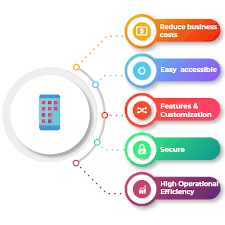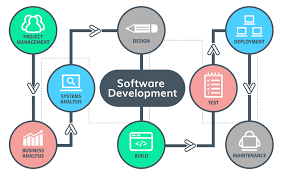Unlocking the Power of Modern Networks for Enhanced Connectivity
The Importance of Networks in Today’s Digital World
In today’s interconnected world, networks play a crucial role in enabling communication and data exchange between devices and systems. Whether it’s the internet connecting millions of people worldwide or a local network within a company, networks form the backbone of modern technology.
Efficient Communication
Networks allow devices to communicate with each other, facilitating the transfer of information in real-time. This is essential for businesses that rely on instant communication to collaborate effectively and make timely decisions.
Data Sharing and Storage
Networks enable the sharing and storage of data across multiple devices and locations. This not only improves efficiency but also ensures data security by centralizing storage and backup processes.
Scalability and Flexibility
Networks can be easily scaled to accommodate growing needs, making them flexible solutions for businesses of all sizes. Whether expanding operations or adding new devices, networks can adapt to changes without significant disruptions.
Cybersecurity
With the rise of cyber threats, secure networks are more important than ever. Implementing robust security measures within a network helps protect sensitive data from unauthorized access and ensures business continuity in the face of potential cyber attacks.
Enhanced Productivity
By streamlining communication and data exchange, networks contribute to improved productivity within organizations. Employees can collaborate seamlessly, access resources efficiently, and work more effectively with the support of a well-designed network infrastructure.
Conclusion
In conclusion, networks are integral components of our digital world, enabling connectivity, collaboration, and innovation across various industries. Understanding the importance of networks and investing in their development is key to staying competitive in today’s fast-paced technological landscape.
8 Essential Tips for Securing and Optimizing Your Network
- Ensure your network is secure by using strong passwords and encryption.
- Regularly update your network devices’ firmware to protect against vulnerabilities.
- Implement a firewall to control incoming and outgoing network traffic.
- Use virtual private networks (VPNs) for secure remote access to your network.
- Monitor your network for unusual activity that could indicate security breaches.
- Backup important data regularly to prevent data loss in case of network issues.
- Segment your network to improve performance and enhance security by isolating different types of traffic.
- Provide training for users on best practices for using the network safely and efficiently.
Ensure your network is secure by using strong passwords and encryption.
To ensure the security of your network, it is essential to implement robust measures such as using strong passwords and encryption. Strong passwords help prevent unauthorized access to your network, while encryption adds an extra layer of protection by encoding data transmitted over the network. By prioritizing security through these practices, you can safeguard sensitive information and mitigate the risk of cyber threats compromising your network’s integrity.
Regularly update your network devices’ firmware to protect against vulnerabilities.
Regularly updating your network devices’ firmware is essential to safeguarding your network against potential vulnerabilities. Firmware updates often include patches and security enhancements that address known weaknesses and protect your devices from cyber threats. By staying up-to-date with firmware updates, you can ensure that your network remains secure and resilient against evolving security risks, ultimately enhancing the overall integrity and reliability of your network infrastructure.
Implement a firewall to control incoming and outgoing network traffic.
Implementing a firewall is a crucial step in controlling incoming and outgoing network traffic. By setting up a firewall, organizations can establish rules and policies to regulate the flow of data, ensuring that only authorized connections are allowed while blocking potential threats from unauthorized sources. A firewall acts as a barrier between the internal network and external entities, enhancing security and protecting sensitive information from malicious activities. It serves as a proactive measure to safeguard network infrastructure and maintain a secure environment for data transmission.
Use virtual private networks (VPNs) for secure remote access to your network.
Using virtual private networks (VPNs) is a highly recommended practice for ensuring secure remote access to your network. By encrypting data transmission over the internet, VPNs create a secure tunnel that protects sensitive information from potential cyber threats. Whether accessing company resources from a remote location or connecting to public Wi-Fi networks, VPNs provide an additional layer of security that helps safeguard your data and maintain the integrity of your network infrastructure.
Monitor your network for unusual activity that could indicate security breaches.
Monitoring your network for unusual activity is a crucial step in maintaining cybersecurity. By keeping a close eye on network traffic and system logs, you can quickly identify any anomalies that may signal a security breach. Early detection of suspicious behavior allows you to take immediate action to mitigate potential threats and safeguard your network from unauthorized access or data breaches. Regular monitoring and analysis of network activity are essential practices in ensuring the security and integrity of your digital infrastructure.
Backup important data regularly to prevent data loss in case of network issues.
Regularly backing up important data is a crucial practice to prevent data loss in the event of network issues. By creating backups of essential files and information, you can ensure that your data remains safe and accessible even if there are network disruptions or failures. This proactive approach not only safeguards your valuable data but also provides peace of mind knowing that you have a contingency plan in place to mitigate the impact of any unforeseen network problems.
Segment your network to improve performance and enhance security by isolating different types of traffic.
Segmenting your network is a valuable strategy to enhance performance and bolster security by isolating distinct types of traffic. By dividing your network into separate segments, you can prioritize critical data flows, optimize bandwidth usage, and minimize the impact of potential security breaches. This approach not only improves network efficiency but also strengthens your overall cybersecurity posture by containing threats and limiting their spread across different network zones.
Provide training for users on best practices for using the network safely and efficiently.
To ensure the safe and efficient use of the network, it is essential to provide training for users on best practices. Educating users on how to navigate the network securely, avoid potential threats, and optimize their usage can significantly enhance overall network performance and cybersecurity. By empowering users with the knowledge and skills to make informed decisions while utilizing the network, organizations can create a culture of awareness and responsibility that benefits both individual users and the network as a whole.











